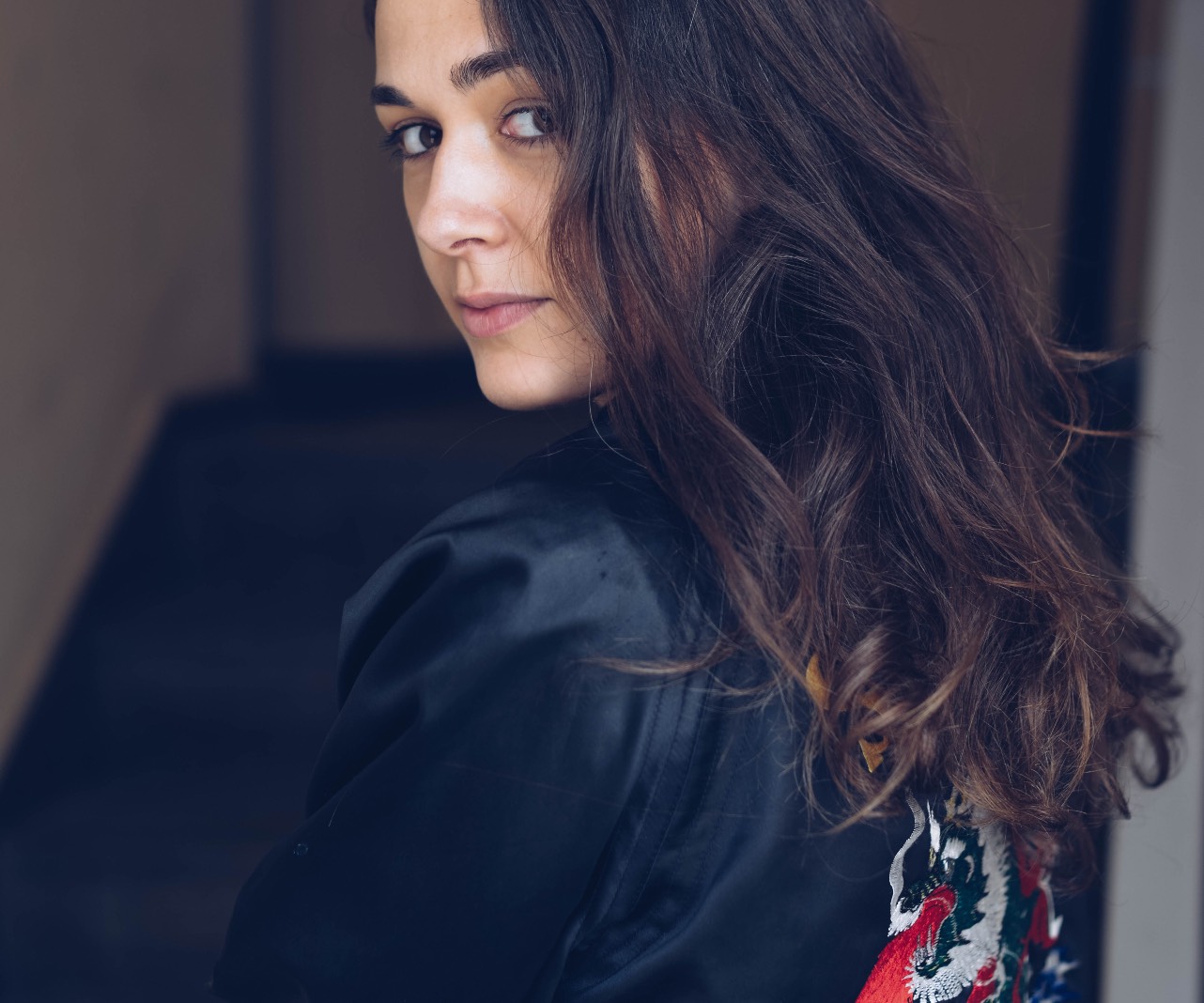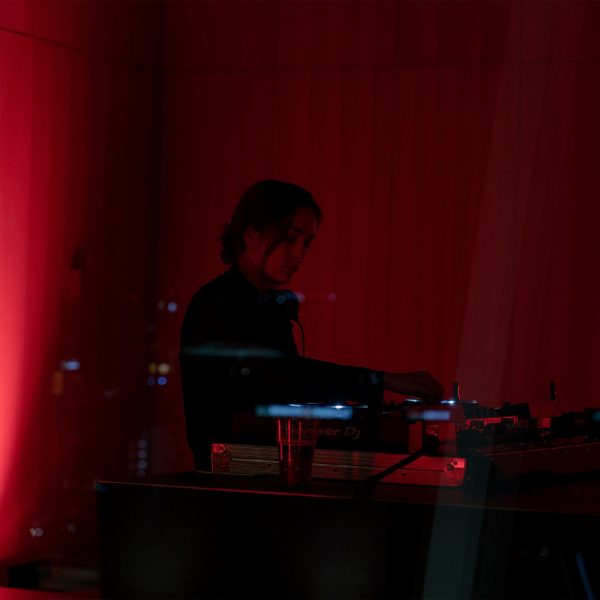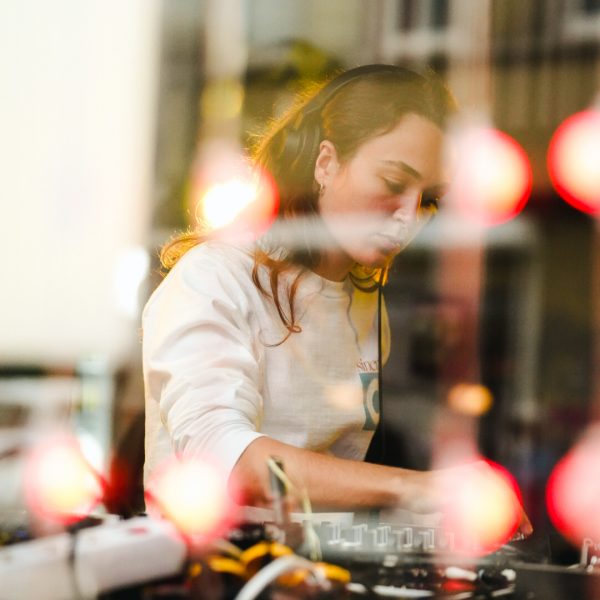In the spectrum of Techno’s expansive history, we’re living in an age of supremacy for the genre. More popular today than the previous height of success in the late nineties, its adulation is only really surpassed by its more accessible cousin, Tech-House. It’s a golden age for Techno, with everything from brutalist marching rhythms to soulful dub inclinations broadening the scope of the genre. Being a fan is no longer a singular pursuit, with individual tastes as varied as the people that follow them.
With so many new artists and DJs coming to the genre, each with their own approach and style of playing and making music, there’s a subjectivity that arises and it takes a unique individual to come to the fore in this landscape. Lara Palmer is such an individual. A DJ, music writer and editor for mnmt.no she arrives at the genre with a sense of objectivity that few are able to concede in their activities in Techno.
A DJ that avoids the ubiquitous DJ/producer tag and a writer that avoids the perilous cavern of reviews in favour of proliferating artistic voices, Lara is a distinctive entity in today’s musical landscape. A Norwegian/German, who spent some time in Norway in her youth, she’s done her bit in securing that ineffable bridge between Norway and Berlin in music. Alongside factions like flux collective, techno kjelleren, ute.rec, and all the raves happening around the forests each summer, Norway’s occupations with Techno have seen the genre’s popularity grow exponentially in the last few years.
Lara and her work through mnmt as a blog, event series and festival have played no small part in growing appreciation for the genre. As writer and editor, she continues to shine a light on the great producers of the genre, while as a DJ she avidly supports the scene by buying the records and distributing it to anybody that will listen.
She arrives at Jaeger next Friday to play alongside SGurvin in the basement so we turned the tables on her for a bit of Q&A time with our next guest. We talked to her about influences, her love of Techno and drawing the line between music writer and DJ.
Hey Lara. Thank you for taking the time to answer some questions. What is your earliest memory of a piece of music?
The earliest one must be my mother singing Norwegian lullabies to me. I also have vivid childhood memories of music by Édith Piaf, Caetano Veloso, Jan Garbarek or Glenn Gould playing on the stereo at home. I remember being quite captivated by it.
I played classical violin throughout my school days, but did not really like practising on my own. I much rather enjoyed playing in the orchestra, building a body of sound together. This might have been some of my first experiences of people being gathered in a room filled to the brim with frequencies, something I have been drawn to ever since.
What was your introduction to electronic- and club music? Has it always been about Techno, and what first drew you to the sounds of the genre?
I started getting interested in electronic music around age 14/15, when I was living in a small city in Northern Norway. (I grew up in Berlin, but lived in Mo i Rana between age 11 and 15.) We were a group of friends that were somewhat nerdy about music, spending many hours on Myspace, exchanging playlists or wandering around the quiet streets with our headphones on, listening to stuff like Kim Hiorthøy, Ratatat, Xploding Plastix, 120 days or The Knife. We also listened to a lot of indie bands, and I remember especially liking stuff where synths were involved.
When I moved back to Berlin and started going out – to open airs around the city, the so-called Sexy Döner parties, Club der Visionäre and Fusion festival – I gradually listened more and more closely to the music being played. That interest never let me go again, but it was first during the time I lived in Oslo to study and worked at The Villa on the weekends, that I became able to clearly distinguish what I actually resonated with genre wise, which evolved towards what I would call minimalistic, atmospheric and trippy techno.
You say you’re drawn to the atmospheric, minimalist and trippy sounds. What are some of your influences and touchstones for this kind of sound?
Even though he plays varied, in my opinion Freddy K is a great example of the stripped back, no-fuss kind of techno I enjoy most. Mike Parker and Markus Suckut have perfected a minimalist approach when it comes to production, each in their own way. In terms of atmosphere and trippiness I can mention Dasha Rush, Jane Fitz, Sandwell District, Rødhåd, Yogg, Synthek or natural/electronic.system. as some of the artists that have left a strong impression on me.
As a trained musician, did you slip into DJing with ease and what were some of the main obstacles in the transition from a music lover to a DJ?
I did my first attempts at DJing using timecode vinyl and CDJs, and struggled a little with those media. When I switched to vinyl, I found it easier to build the sort of connection to and understanding of the music playing that is helpful for DJing. (Thanks to Korpex who provided the time and space for me to get introduced to the craft!) My musical ear trained by years of conscious listening was surely helping, but I think practice helps even more – and I still have a great deal of that to do.
Do you have any aspirations to make music?
In an ideal world I would, but at this moment in my life I do not feel that I can prioritise it.
You’re not only a DJ and admirer, but you’re also a writer and editor who proliferates this music through your work at mnmt.no. How did you get into that aspect of music?
I have enjoyed writing for a long time, and am a social and cultural anthropologist by training. So researching, interviewing and writing about interesting people, trying to get across a glimpse of an artist’s world is simply very inspiring. If it helps them promote their art, it gives me a sense of purpose.
More specifically, I started writing for Monument five years ago, when I bumped into a part of the crew at a festival in the Spanish mountains and they needed someone to edit the review of it.
How does that aspect of your life and work influence what you do in the booth or your musical tastes?
Being part of the collective gives me a frame to develop within, and a community of like-minded people to share thoughts and ideas. Of course it influences my focus of listening, but there is not a complete overlap between the sub genres of techno associated with Monument and what I like the most, so there is always room to explore different avenues.
How do you maintain a sense of objectivity as a fan and DJ of this music when you are writing about it or presenting it via Monument?
Listening is a very personal experience, so when music is concerned, maintaining a sense of objectivity is difficult. To circumvent this, I have for instance very rarely written reviews. I prefer interviews, where I can stay in the background, letting the artists speak. Yet my subjectivity will always be part of the exchange somehow.
You seem to spend your time between Berlin and Oslo. How do these two cities influence how you might approach a set?
I live in Berlin but visit Oslo regularly. I don’t think the city itself influences my approach too much, I rather think about the room I will be playing in and think about what could fit the setting.
While Berlin is the epicentre for Techno, Oslo’s certainly found an idiosyncratic scene in recent years. How do you distinguish the sound and style of these two places and where do you think they share a common ground today?
I would say that the Oslo scene has “traditionally” been dominated by house and disco, but has become increasingly receptive to techno in recent years – even though it is hard to judge from a distance. But since I moved back to Berlin six years ago, I somehow got the impression that there are more artists and crews popping up beyond the Oslo-disco/house-continuum. Another sign of good health is the Ute.Rec crew, who do really inspired stuff that you maybe would not expect from Oslo.
Pinning down a specific sound or style of Berlin is hard because here you have literally everything. What might bind it all together though could be the urge to constantly push towards new territories.
Berlin is such a mecca for a vinyl enthusiast. Where do you like to go to find music to DJ, and what preferences do you have when it comes to buying old vs new?
I have found many great records – old and new – at Spacehall over the years. A more recent discovery has been The Consulate, a hidden place run by three Belgians. Bikini Waxx is great for finding used gems.
What do you look for in a track to make into one of your sets?
There is of course a certain frame given by the kind of aesthetic I like, but in the end I chose a track if I can hear an artistic inspiration behind it and if it speaks to me. Either it clicks or it does not. On the other hand, I often find tracks on records I bought quite some time ago for other reasons that I suddenly enjoy very much, so I think what you perceive in a track has a lot to do with the state you are in at a specific moment.
Any secret/not-so-secret weapons that will be making it in your bag on the way to Norway?
You can expect anything from this
to this




